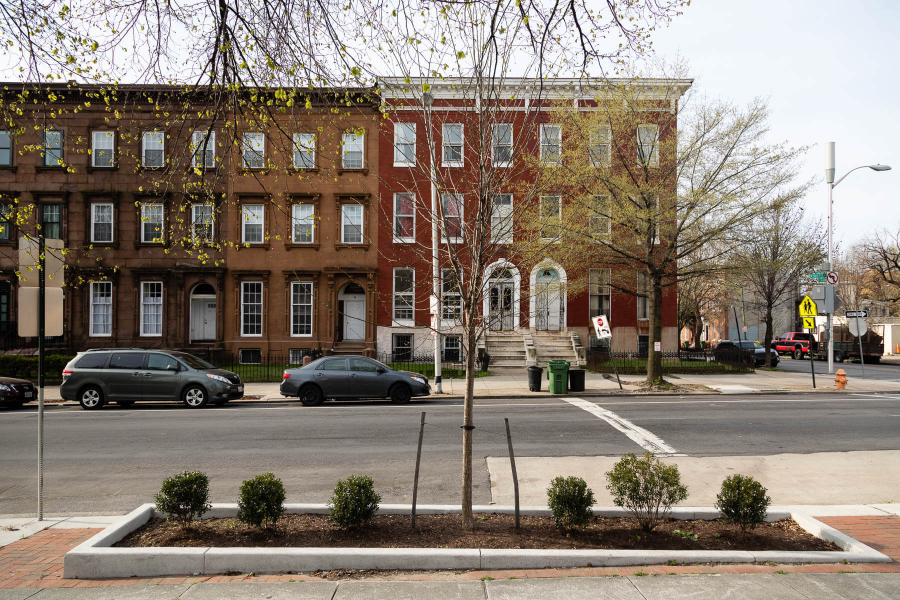Local governments plan for resilient communities
Annual Local Government Forum convened local decision-makers and climate experts to discuss resiliency planning

The ability of communities to rebound, or positively adapt to natural disasters is rapidly becoming a priority for local governments. As concerns around climate hazards grow, such as flooding and extreme heat, ensuring resilience is the key to a thriving community for present and future generations.
A feasible way local governments can prioritize resilience is to incorporate it into existing local plans, such as those for hazard mitigation, stormwater management or parks and recreation, just to name a few. Resilience planning would address known flood areas, analyze changes in climate and use data projections to inform potential risks.
Identifying opportunities to integrate resilience into planning processes like these can provide many benefits to a community such as increased efficiency of environmental projects, a positive impact on the local economy and the development of mutually beneficial goals across planning departments.
To discuss this strategy further, the Chesapeake Bay Program’s Local Government Advisory Committee (LGAC) convened local decision-makers, planners and climate experts from across the Chesapeake Bay region for its annual Local Government Forum focused on Integrating Resilience into Local Planning.
With funding from the National Fish and Wildlife Foundation, this one-day problem-solving forum examined the barriers to building support for resilience, undergoing the planning process with resilience in mind and carrying out the plans successfully. Representatives from Cumberland County, Pennsylvania, Hampton Roads, Virginia and Baltimore, Maryland also joined the forum to share how they have seen success in adapting this strategy within their own communities.
The overarching goal of these Local Government Forums is to develop solution-oriented recommendations that combat issues local governments face. These recommendations are used to advise the Bay Program’s leadership including the Chesapeake Executive Council.
This year, five recommendations addressing local government’s highest priority needs for integrating resilience into planning efforts were identified:
Develop clear and concise language to provide local governments with the knowledge and resources to build buy-in for resilience. In order to build support for resilience efforts, communication is key! Equipping local governments with the proper tools for communication that resonates with the concerns and values of their constituents is critical in justifying the investment in resilience planning.
Provide guidance on integrating resilience into existing plans based on state and federal regulations. A toolkit that identifies pathways to integrating resilience into commonly existing plans will aid local governments when faced with the challenge of conducting the planning process.
Expand funding sources to be more equitable in supporting various local communities. Many funding opportunities are limited in the types of projects they support and funding for planning and concept design is minimal. At the same time, not all local government offices have the time or ability to navigate the complexities of securing funding. Increasing the availability and flexibility of funding sources while broadening the scope of existing programs will provide local governments with the support they need to build and maintain resilience within their communities.
Host an annual resilience conference for local and state elected officials, local government staff, academia and subject matter experts within the non-profit and private sectors. When developing a resilient community, it is important to build a network of enthusiasm, encouragement and collaboration across sectors. Convening a diverse set of stakeholders will not only build awareness of resilience challenges, but increase basic levels of understanding, encourage buy-in, allow for resource sharing and foster potential partnerships for addressing these issues.
Identify ways to provide technical support to local governments with resilience planning. Many local governments do not have the ability to take on additional or specialized actions to further resilience planning. The need of dedicated staff to support communities in research, outreach and implementation is apparent.
This year’s Local Government Forum offered a dedicated opportunity for local leaders and subject matter experts throughout the Chesapeake Bay region to discuss shared challenges and exchange knowledge surrounding solutions to resilience planning. The recommendations identified will serve as a catalyst to support local governments as they build their community’s resilience, and continue to strengthen the Bay, its tributaries and surrounding lands.
For more information on the 2022 Local Government Forum: Integrating Resilience into Local Planning, or past forums, please visit LGAC’s webpage to access and download the full forum reports.

Comments
There are no comments.
Thank you!
Your comment has been received. Before it can be published, the comment will be reviewed by our team to ensure it adheres with our rules of engagement.
Back to recent stories